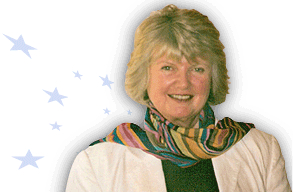It’s always a very special treat when someone I respect — in this case a past Q&A subject — nominates a practitioner to participate in this series. Lisa Rosetti nominated her writing coach Elizabeth (Lizzie) Gates. “Lizzie is a very accomplished writer and my writing coach,” Lisa wrote, “and she is very knowledgeable around organizational storytelling. This field is gaining a lot of interest in UK; for example, there’s an upcoming seminar in April at Northampton Business School around storytelling in organizations led by Yiannis Gabriel.” I’m thrilled to publish this interview with Elizabeth. The Q&A will run over the next several days.
Bio: Elizabeth has a BA. Honours in English Language and Literature and  an MA in Linguistics. She has worked in Belgium, Germany, and the UK, training adult learners in English-language skills, creative writing and English for special purposes. Since 1985, she has been a practising journalist, writing for national and regional newspapers and magazines on health and well-being. She is also an experienced ghostwriter. In 2005, Elizabeth trained as a personal and executive coach with the prestigious coach training school, Coaching Development. And since then she has developed Lonely Furrow Company — a client-centred practice specialising in writing coaching and communication coaching and using writing interventions, transactional analysis, neuro-linguistic programming, and accelerated learning techniques such as story-telling to achieve highly-successful outcomes. Her Out of the Box interactive workshops are already recognised nationally as a powerful way of developing creative communication, leadership and writing skills. She is committed to a rolling programme of continuous professional development and supervision
an MA in Linguistics. She has worked in Belgium, Germany, and the UK, training adult learners in English-language skills, creative writing and English for special purposes. Since 1985, she has been a practising journalist, writing for national and regional newspapers and magazines on health and well-being. She is also an experienced ghostwriter. In 2005, Elizabeth trained as a personal and executive coach with the prestigious coach training school, Coaching Development. And since then she has developed Lonely Furrow Company — a client-centred practice specialising in writing coaching and communication coaching and using writing interventions, transactional analysis, neuro-linguistic programming, and accelerated learning techniques such as story-telling to achieve highly-successful outcomes. Her Out of the Box interactive workshops are already recognised nationally as a powerful way of developing creative communication, leadership and writing skills. She is committed to a rolling programme of continuous professional development and supervision
Q&A with Elizabeth Gates, Questions 1 and 2:
Q: How did you initially become involved with story/storytelling/ narrative? What attracted you to this field? What do you love about it?
A: I was brought up by storytellers. Telling stories was how we related to each other, entertained each other, informed each other, re-affirmed each other. I love storytelling because what my family of storytellers did for me, I can do for others.
 Q: One of your areas of specialization is storytelling and writing for well-being. How did you get involved in that area? Did you have personal experience with having your well-being improved through writing/storytelling?
Q: One of your areas of specialization is storytelling and writing for well-being. How did you get involved in that area? Did you have personal experience with having your well-being improved through writing/storytelling?
A: Story-telling and writing for well-being have chosen me, and I have built on what they have given me. I started to write as I learned to read stories. And I have written all my life. But at times of crisis — when in such severe trauma I doubt my heart will hold out — writing is a form of restorative meditation. And — although I can tell stories to move to tears — I also tell stories to entertain and develop relationships. Although at times, I cannot avoid the former, I prefer the latter.
